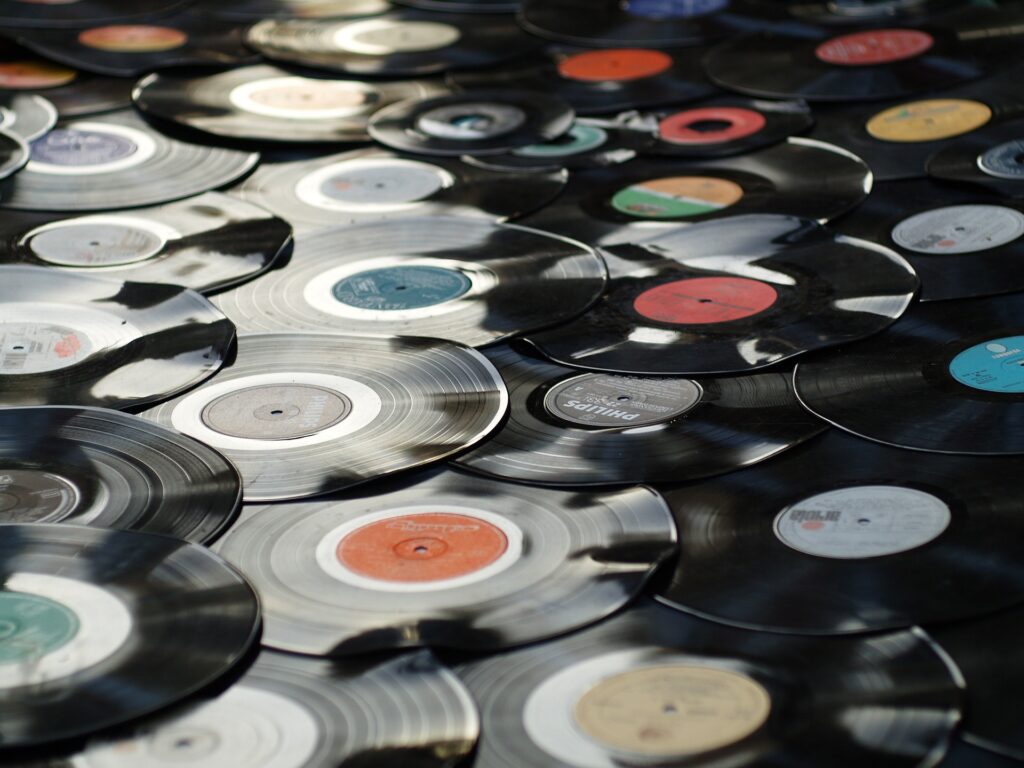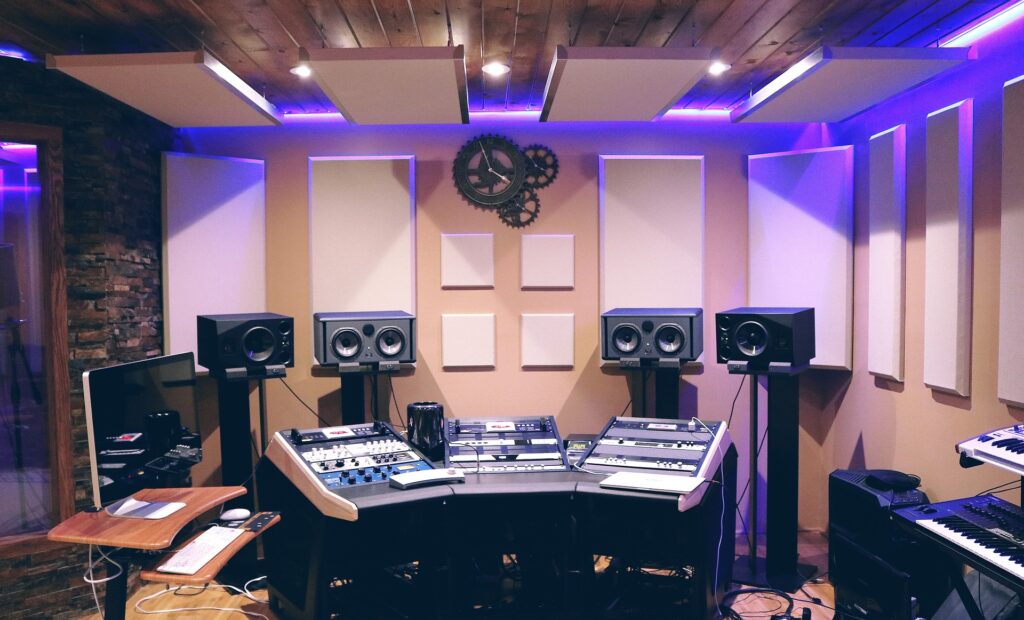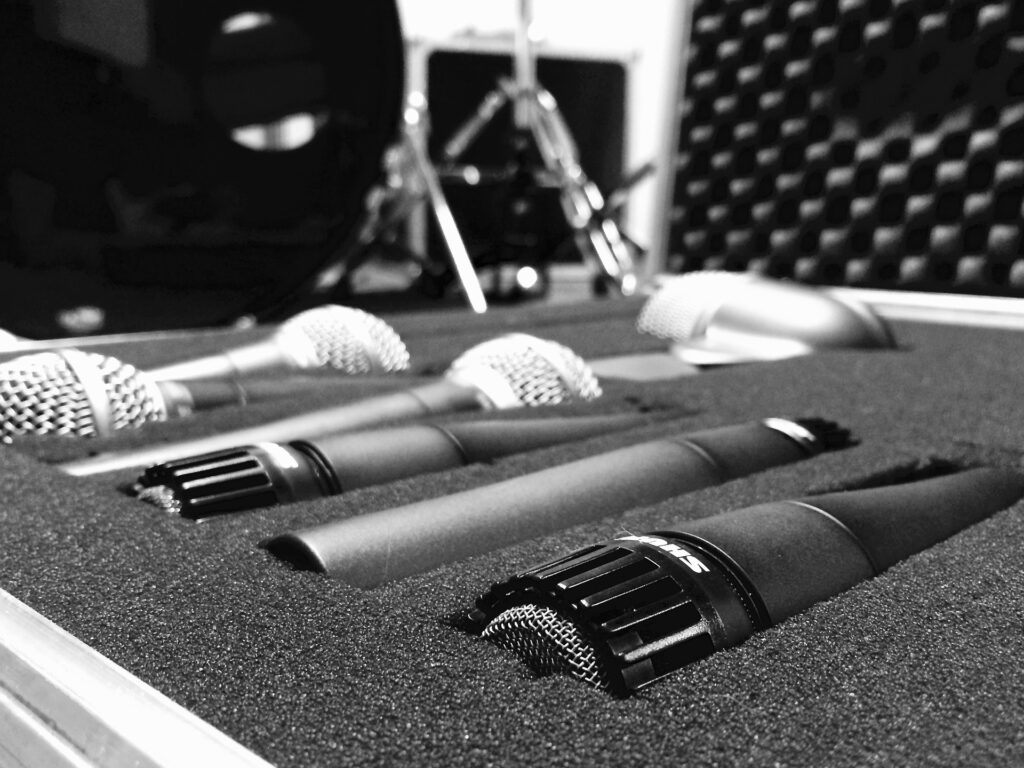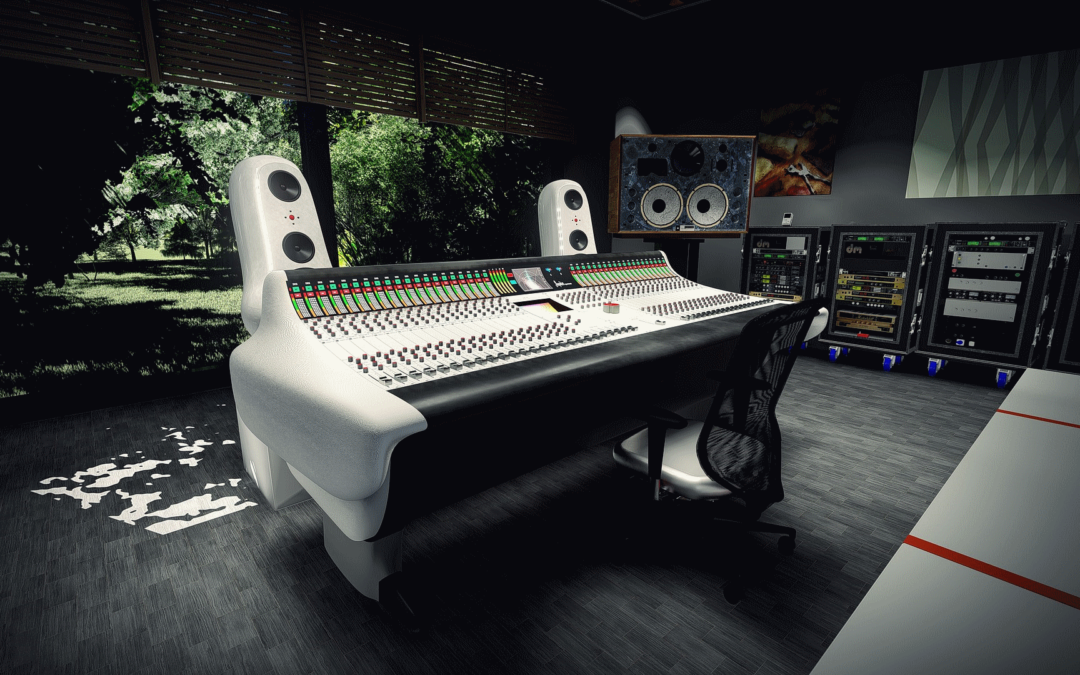Non-fungible tokens (NFTs) have recently taken the world by storm, especially in the entertainment industry. NFTs are unique digital assets that are stored on a blockchain, a decentralized digital ledger that keeps track of every transaction. These assets can be anything from pictures, Music, videos, or video Game items.
The entertainment industry is now starting to see the potential of NFTs and some companies are already experimenting with this new technology. NFTs could change the Game in the entertainment industry in so many ways. Here are a few reasons why:
1. Creating unique experiences
One of the biggest advantages of NFTs is the ability to create unique experiences for fans. With NFTs, entertainment companies can create unique experiences for fans, such as special access and early access to new content. This creates a sense of exclusivity and could help drive more engagement and revenue to the entertainment industry.
2. Making fans the owners of their favorite content
In the current entertainment industry, fans don’t really own the content they are consuming. They can just rent it and consume it until they no longer want to. With NFTs, fans can own a piece of their favorite content. For example, a fan can potentially own a unique video clip from their favorite movie or a song from their favorite artist. This ownership can help create a stronger connection between the fans and the content.
3. Monetization opportunities
NFTs also create new monetization opportunities for the entertainment industry. With NFTs, creators can sell their unique digital assets directly to their fans. This removes the need for intermediaries, such as record labels or movie studios, which could potentially increase the revenue for the creators.
4. Anti-piracy measures
Piracy is a major issue in the entertainment industry. With NFTs, creators can create unique, blockchain-backed digital assets that can’t be duplicated or pirated. This could be a Game-changer for the industry as it could potentially reduce the piracy issue.
5. New opportunities for creativity
NFTs also create new opportunities for creativity in the entertainment industry. Creators can use this technology to create unique assets that can’t be duplicated or reproduced. This opens the door for new creative opportunities that haven’t been explored before.
NFTs have the potential to revolutionize the entertainment industry. They create new opportunities for fan engagement, ownership, monetization, anti-piracy measures, and creativity. As more and more creators and fans get involved with NFTs, the entertainment industry will continue to evolve and adapt to this new technology.
Exploring the Possibilities of NFTs in the Entertainment Industry
With the rise of blockchain technology and cryptocurrencies, a new type of asset has emerged – Non-Fungible Tokens (NFTs). NFTs are digital assets that represent ownership or rights to a specific piece of digital content, such as artwork, Music, videos, and even tweets. Unlike traditional currencies or cryptocurrencies, NFTs are unique, non-interchangeable, and cannot be replicated or replaced.
One of the industries that have embraced NFTs is the entertainment industry. NFTs offer a new way for artists, musicians, filmmakers, and other creatives to monetize their work and connect with their fans. In this article, we explore the possibilities of NFTs in the entertainment industry.
Artists and artwork
NFTs offer a new way for artists to showcase and sell their artwork to a global audience. Artists can create digital versions of their artwork and sell them as NFTs on blockchain marketplaces, such as OpenSea or Nifty Gateway. Art collectors and fans can buy and own digital versions of their favorite artwork, which are unique and verified on the blockchain. This allows artists to earn money from their art, even if they are not selling physical copies.
Music and musicians
NFTs can also be used in the Music industry. Musicians can create NFTs that represent ownership of their Music, lyrics, or other digital assets. Fans can buy these NFTs and have a stake in the musician’s success. For example, a musician can create an nft that represents a stake in their upcoming album’s profits. This allows fans to invest in their favorite musician’s career and have a sense of ownership.
Films and filmmakers
NFTs can also be used in the film industry. Filmmakers can use NFTs as a way to finance their films or to sell digital versions of their films. For example, a filmmaker can create an nft that represents a 10% ownership stake in their upcoming film. Investors can buy these NFTs to contribute to the film’s budget and receive a share of the film’s profits. This allows filmmakers to finance their films without relying solely on traditional funding sources.
Collectibles
NFTs can also be used to sell collectibles related to entertainment, such as sports memorabilia, comic book art, or rare trading cards. NFTs are perfect for collectibles as they are unique and can be verified on the blockchain. Collectors can buy and own rare or unique digital versions of their favorite collectibles and prove ownership on the blockchain. This allows fans of collectibles to buy and own them without the hassle of physical storage or authentication.
NFTs offer an exciting new way for creatives to monetize their work and for fans to connect with their favorite entertainment artists. The entertainment industry is just beginning to explore the possibilities of NFTs, and it will be exciting to see how it develops in the coming years. With the power of blockchain technology, NFTs are a revolutionary way for artists, musicians, filmmakers, and other creatives to monetize their work and build stronger connections with their fans.

Discover the Benefits of Creative Thinking for Inspiration
Creative thinking has been known to bring about a tremendous amount of benefits, one of which is inspiration. It allows an individual to think outside the box, come up with innovative ideas, and tackle problems with a fresh perspective.
In today’s fast-paced world, creativity has become a valuable asset that businesses and individuals utilize to achieve success, as it breathes life into the mundane daily tasks that cloud our minds. Unfortunately, some individuals still view creativity as a talent that is reserved for a selective group of people. Contrary to popular belief, creativity is not a talent but a mindset that can be developed and improved over time.
When we think creatively, we unlock countless possibilities leading to inspiration, which is crucial in broadening our imagination, finding innovative solutions, and gaining new insights into the world around us. Here are some benefits of creative thinking for inspiration:
1. Boost problem-solving skills
By adopting a creative mindset, we become more adaptable and able to view problems from different angles. As such, we can approach problems with an inventive and fresh twist, which can lead to more efficient and effective solutions.
2. Explore new ideas
Many ideas are beyond our reach because we tend to limit ourselves to the traditional way of thinking. Creative thinking enables us to explore new ideas, and this leads to a wider range of possibilities and innovations.
3. Increase innovation
Innovation would not be possible without creativity. Creative thinking is the backbone of the innovation process as it allows individuals to imagine new solutions that could advance their respective fields.
4. Encourage self-expression
When we approach situations with a creative mindset, it encourages self-expression, through the use of varying mediums like art or writing, and this helps us to explore ourselves more deeply.
5. Promote collaboration
Creative thinking techniques such as brainstorming are proven to be effective in promoting collaboration and idea sharing. When team members pool their creative resources, they can come up with concepts that would not have been possible to achieve individually.
Creative thinking promotes inspiration, a concept that allows us to unlock new horizons and possibilities. By embracing this mindset, we can enhance problem-solving skills, explore new ideas, encourage self-expression, promote innovation, and encourage collaboration. With consistent practice, anyone can develop their creative thinking abilities and begin to reap these benefits.
Unleashing Your Creativity To Find Renewed Inspiration
As human beings, we are all creative beings at some level. Whether it’s painting, writing, cooking or simply coming up with new ideas, we all have the ability to create something that can bring joy and beauty into the world. However, sometimes our creativity can become stale or stagnant, and we find ourselves lacking inspiration and direction. In times like these, it’s important to find ways to unleash our creativity and rediscover our passion for creating.
One of the best ways to unleash our creativity is to try something new. If we’ve been working on the same project for a while, we might feel stuck in a rut and unable to come up with fresh ideas. In situations like these, it can be helpful to switch gears and try something completely different. Perhaps we’ve been working on a novel for months, but we’re struggling to come up with new plot developments. Taking a break from the novel to write a short story or a poem can help us tap into our creativity in a new way.
Another way to unleash our creativity is to collaborate with others. Sometimes we can get stuck in our own heads and find ourselves running out of ideas. By working with others, we can bounce ideas off each other and come up with new and exciting ways to approach a project. Collaboration can also help us to see things from a different perspective and spark our creativity in unexpected ways.
Another way to find renewed inspiration is to engage in creative activities that we enjoy. If we’ve been feeling stuck while working on a particular project, it can be helpful to take a step back and focus on other creative activities that we love. Perhaps we enjoy painting or playing Music, or maybe we find peace in running or hiking in nature. Engaging in activities that bring us joy and peace can help us to clear our minds and find renewed inspiration for our creative projects.
Finally, it’s important to give ourselves permission to fail. At times, our fear of failure can hold us back from trying new things or stepping outside of our comfort zones. But failure is an essential part of the creative process. Every great artist or inventor has faced setbacks and failures along the way. It’s through these failures that we learn and grow as creatives, and we discover new and better ways to approach our work.
Unleashing our creativity and finding renewed inspiration is a crucial part of the creative process. By trying new things, collaborating with others, engaging in activities we enjoy, and giving ourselves permission to fail, we can break out of creative ruts and discover new depths of our creativity. Whether we’re writing a novel, painting a masterpiece, or simply brainstorming new ideas, creativity is a powerful tool that can bring joy and beauty to our lives and the world around us.

How to Create a Professional Recording Studio on a Budget
Creating a professional recording studio on a budget may seem like an impossible task, but with a little bit of creativity and strategic planning, it can be done. Whether you’re a musician, podcaster, or voice-over artist, having a space to produce high-quality recordings is essential. In this article, we’ll explore some tips for creating a professional recording studio on a budget.
1. Choose the right space
The first step in creating a professional recording studio is choosing the right space. Your priority should be finding a room with good acoustics — a space that doesn’t have too much echo or background noise. A small room with minimal acoustic treatment can be a good starting point. It’s also important to choose a space that’s accessible and allows for easy transportation of equipment.
2. Invest in quality equipment
When it comes to creating a professional recording studio, investing in quality equipment is essential. However, you don’t necessarily need to buy the most expensive gear on the market. You can start by choosing equipment that fits your needs and budget. For example, a condenser microphone with a pop filter, a good quality interface, and a pair of studio monitors can be enough to get you started.
3. Acoustic Treatment
Acoustic treatment is the process of minimizing echoes and other unwanted sounds in your recording space. You can use blankets, foam or even DIY acoustic panels made from plywood and insulation to cover the walls and ceilings. It’s important to make sure that you don’t overdo it though, as too much acoustic treatment can make your space sound too dead and uninviting.
4. Optimize your workflow
While it’s important to invest in quality equipment, it’s equally important to optimize your workflow to make the most of your time and resources. Consider investing in a DAW (digital audio workstation), and use plugins and samples to create Music or add sound effects in post-processing. This can save you a lot of time and money in the long run.
5. Consider studio rentals
If you don’t have the space or funds to create your own studio, consider renting a professional studio instead. This can be a cost-effective solution, as you can have access to high-quality equipment and acoustics without having to spend a lot of money on additional acoustic treatment or gear.
Creating a professional recording studio on a budget requires careful planning and investment in the right equipment. By choosing the right space, investing in quality equipment, optimizing your workflow, and considering studio rentals, you can create a professional-quality space without breaking the bank. With hard work and dedication, you can create a space that produces high-quality recordings that will help you achieve your creative goals.
Maximize Your Studio with These Pro Tips
As a musician, your studio is your haven for creativity, your laboratory for experimentation, and your sanctuary for expression. Whether you’re a bedroom guitarist, a professional pianist, or an aspiring singer-songwriter, your studio is the nucleus of your artistry.
To maximize your studio and elevate your Music production skills, here are some pro tips to follow:
1. Invest in high-quality equipment: Your instruments, microphones, monitors, computer, and recording software are the backbone of your studio. Make sure you invest in gear that meets your needs, fits your budget, and delivers the sound quality you desire. Don’t compromise on your tools of the trade.
2. Optimize your acoustics: Your room’s acoustics can make or break your recordings. Pay attention to the shape, size, wall coverings, flooring, and furniture in your studio, and try to achieve a balanced and natural sound that doesn’t bounce or absorb too much. Use acoustic treatment materials like foam, panels, or curtains to mitigate unwanted reflections or resonances.
3. Learn to mix and master: Recording your tracks is only half the battle; the other half is mixing and mastering them. Learn the basics of EQ, compression, reverb, delay, and other plugins to enhance your recordings’ clarity, coherence, depth, and loudness. Focus on achieving a balanced and cohesive sound that suits the genre of your Music.
4. Collaborate with others: Don’t be an island in your studio. Collaborating with other musicians, producers, engineers, or songwriters can expand your horizons, challenge your ideas, and bring fresh perspectives to your Music. Join online communities, attend events, or hire professionals to work with you on projects. You’ll learn a lot from the experience and make valuable connections in the industry.
5. Practice and experiment: Your studio is a playground for your creative impulses. Don’t limit yourself to a certain style or formula. Practice your instrument regularly, try new techniques and genres, and experiment with different sounds, textures, and arrangements. The more you explore and push your boundaries, the more you’ll grow as a musician and a producer.
Maximizing your studio takes time, effort, and dedication, but the rewards are immeasurable. By following these pro tips and applying your talent and passion, you’ll be able to create Music that resonates with your audience and fulfills your artistic vision. So go ahead, plug in, turn up, and let your studio be your muse.

Discovering the Hidden Gems of Chicago’s Music Studios
Chicago is a city that has long been renowned for its vibrant Music scene. From the Blues and Jazz that reverberated through its bars and clubs in the 20s and 30s, to the Punk and Hip Hop movements of the 70s and 80s, and the current indie and electronic Music scenes, Chicago’s Music has always had a unique charm and energy. And at the heart of this musical landscape are the recording studios where much of the city’s Music is created and recorded.
While many of these studios are well-known and celebrated, there are also a number of hidden gems that are lesser-known, but equally important and influential in Chicago’s Music history. In this article, we will take a closer look at some of these hidden gems and explore their significance to the city’s musical legacy.
One such hidden gem is Electrical Audio, a studio founded by Steve Albini in 1997. Albini, a legendary producer and engineer, has worked with the likes of Nirvana, Pixies, and PJ Harvey, and his studio in Chicago has become a mecca for alternative and indie bands. With its no-nonsense approach to recording, and an impressive collection of vintage gear, Electrical Audio has become a go-to destination for bands looking for a raw and authentic sound.
Another hidden gem is Gravity Studios, which was founded in 1998 by Doug McBride. Gravity has been home to a diverse range of artists, from Blues legends like buddy Guy to indie rockers like Ida. Gravity’s unique selling point is its unique analog mixing desk, which was custom-built by McBride himself. This console has become a key part of Gravity’s sound and has helped the studio attract clients from all over the world.
Another lesser-known studio is Audible Images Recording Studios, which has been operating since the mid-1970s. With a focus on R&B, Soul, and Gospel Music, Audible Images has played a key role in shaping the sound of these genres in Chicago. Countless local legends have recorded at Audible Images, including the likes of Curtis Mayfield, Gene Chandler, and The Chi-Lites.
Another hidden gem is Riverside Studios, which was established in the early 1980s by the legendary Chicago-based producer Jim Wilson. Riverside has been home to a number of iconic recording sessions, including those by the legendary Blues pianist Pinetop Perkins and Rockabilly legend Robert Gordon. Riverside is still active today and is one of the few studios in Chicago which still offers analog recording.
Finally, we have Pressure Point Recording Studios, which has been operating since 1971. With a focus on Funk and Hip Hop, Pressure Point has played a key role in shaping the sound of these genres in Chicago. The studio has been home to a number of iconic recording sessions, including those by legendary Chicago rapper Common.
Chicago’s Music scene is a rich tapestry of sound and culture, and its recording studios are the beating heart of this scene. While many of these studios are well-known and celebrated, there are also a number of hidden gems that are lesser-known but equally important and influential in Chicago’s Music history. Whether you are a Music aficionado or a casual listener, taking the time to explore these hidden gems is well worth the effort.
Achieving Your Music Dreams in Chicago: How to Become a Professional Musician
Aspiring musicians often dream of making it big in the Music industry, but with the countless number of talented individuals out there, making it to the top is no easy task. However, with hard work, dedication, and the right mindset, achieving your Music dreams in Chicago can be a reality. Here are a few tips to help you become a professional musician in the Windy City:
1. Network, network, network
Chicago is a melting pot of talented musicians and Music industry professionals, and networking is key to getting your foot in the door. Attend local Music events, connect with fellow musicians on social Media, and ask around for recommendations on Music industry professionals that may be able to help you achieve your dreams.
2. Find your niche
With the vast array of genres and musical styles out there, it’s important to find your niche and hone your skills in that particular genre/style. Whether it’s jazz, hip-hop, classical, or something completely unique, focus on mastering your craft and perfecting your sound.
3. Learn from the best
Chicago is home to many world-renowned musicians and Music institutions such as the Chicago Symphony Orchestra, the Chicago Jazz Orchestra, and the Chicago College of Performing Arts. Take advantage of the city’s abundance of resources and learn from the best in the industry. Attend workshops, masterclasses, and jam sessions to gain valuable experience and exposure.
4. Build a strong online presence
In today’s digital age, having a strong online presence is key to getting noticed in the Music industry. create a professional Website, maintain active social Media accounts, and regularly post engaging content that showcases your talent and unique style.
5. Persevere and stay focused
Achieving your Music dreams in Chicago is not an easy feat, but it’s important to stay focused and persevere through the ups and downs. Keep practicing, performing, and networking, and never give up on your passion and dedication to your craft.
Becoming a professional musician in Chicago takes hard work, dedication, and a bit of luck. By following these tips and staying persistent, you can achieve your Music dreams and make a name for yourself in the Windy City’s bustling Music scene.

Taking Your Music Passion to the Next Level
As Music lovers, we all have a passion for Music that runs deep. However, there are times when we feel like we could be doing more with our passion. Whether it is learning an instrument, writing our own songs, or performing in front of a live audience, there is always a next level to take our Music passion to. Here are some tips on how to take your Music passion to the next level.
1. Learn a new instrument
One way to take your Music passion to the next level is to learn a new instrument. Whether it is the guitar, piano, or drums, learning a new instrument can broaden your musical knowledge and skill set. You can start by taking online tutorials or lessons, or even attending Music schools to learn from professional teachers.
2. Write your own songs
If you have a passion for Music, chances are you have thought about writing your own songs. Writing your own Music can be a daunting task, but it is also one of the most rewarding experiences for a musician. You can start by jotting down your ideas and inspiration for a song, then working on creating the lyrics and melody. Once you have penned your first song, you can always get feedback from other musicians and even perform it for an audience.
3. Collaborate with other musicians
Collaboration is one of the most important aspects of Music. Collaborating with other musicians can help you expand your musical horizons and also help you grow as an artist. You can start by finding other musicians in your community or even collaborating with musicians from other parts of the world. Thanks to the internet, it’s now easy to collaborate with musicians from different parts of the world.
4. Expand your audience
To take your Music passion to the next level, you need to reach a wider audience. Whether it is performing in local venues or promoting your Music online, expanding your audience can help you get recognized and also gain new fans. You can start by creating social Media pages and promoting your Music on various online platforms. You can also perform at open mic nights, local festivals or other events to get more exposure.
5. Constantly practice and learn
Finally, to take your Music passion to the next level, it is important to constantly practice and learn. Consistent practice can help you improve your skills and also build your confidence. You can also continue to learn by attending Music workshops, listening to other musicians, and even taking up courses to enhance your musical knowledge.
There is no limit to the level you can take your Music passion. With consistent practice, collaboration, and learning, you can expand your skill set, gain new fans, and perhaps even make a career out of your passion. So take these tips and start taking your Music passion to the next level!
Exploring the Vibrant Music Scene in Chicago
Chicago is a city that is famous for its deep-dish pizza, skyscrapers, and cultural attractions. However, apart from these highlights, the city of Chicago is also known for its bustling and vibrant Music scene. Being the birthplace of jazz and the Chicago blues, Music has been an essential part of this city’s culture. Here, we will take a closer look at the diverse and exciting Music scene in Chicago.
Chicago’s history of Music began with jazz, prominently from the time of the Prohibition era, when the city was known for speakeasies, jazz clubs, and nightspots. The legendary jazz pianist and composer, Nat King Cole, was born in Montgomery, Alabama, but spent much of his early life in Chicago. Similarly, Louis Armstrong, who is often called the founding architect of jazz Music, spent a lot of time in the city.
The city’s blues history is also world-renowned. Muddy Waters, buddy Guy, and Bo Diddley are just a few of the blues legends that called Chicago their home. Blues Music from the city has always been raw, hard-edged, and soulful, especially resonating with the African-American population. One of the city’s historic blues clubs, Kingston Mines, is still operational today and has seen many blues legends play on their stage.
In addition to jazz and blues Music, Chicago is also a significant hub for hip-hop and electronic Music. The city has produced some of the most successful hip-hop artists, such as Kanye West and Chance the Rapper, who have put the city’s Music scene on the map again. Electronic dance Music has also grown in popularity in Chicago, and the city hosted its first massive summer Music festival known as Lollapalooza in 1991.
Besides famous names, Chicago is also famous for its smaller, but equally exciting, local Music scene. Throughout the city, many venues that host live performances every night of the week by local artists in different genres. Venues, such as The Empty Bottle, The Hideout, and Schubas Tavern, are just a few of the places to discover up-and-coming aspiring musicians.
In the vibrant neighborhoods like Wicker Park, Logan Square, and Pilsen, you can expect to find unique Music scenes that are reflective of their surrounding communities. These neighborhoods host live performances, block parties, and festivals that attract local artists and other enthusiasts.
Finally, the city’s museums are also an integral part of Chicago’s Music scene. The Chicago Symphony Orchestra that performs at Symphony Center is recognized as one of the best orchestras in the world. There is also the House of Blues, where you can experience live Music and great southern-style cuisine.
Overall, the city of Chicago has a long-standing reputation as one of the Music capitals of the world. From jazz to blues, hip-hop to electronic Music, this city has something to offer for everyone. Exploring Chicago’s Music scene is an incredible experience, and its unique history and diversity of sound make it one of the top destinations for Music lovers everywhere.

